The Power of Resilience
You know those days that feel charged with energy — like the universe lined everything up for you? That was me on October 1st, 2025. I woke up to find my audiobook finally live on Audible — something I’d worked toward for years — and I couldn’t help but laugh at the synchronicity. In numerology, that date adds up to 11. Elevens have always been a signpost for me — reminders that I’m exactly where I need to be.
So when I sat down to record this podcast, it felt right that the topic would be one that has shaped my life more than any other: stress — and more importantly, how to turn stress into resilience.
Stress isn’t the enemy. It’s a built-in part of the human experience. But resilience — the ability to return to balance, to thrive in the face of challenge — that’s the real magic. And the best part? You can build it. You can start today.

Chapter 1: Survival vs. Creation — Two States of Being
For so much of my life, I lived in survival mode without even realising it.
When I was a teacher — with 30 kids in a classroom, field trip permission slips flying, and report cards waiting to be written — I’d often find myself exhausted before the first bell even rang. I’d drive to work already in a state of high alert, heart racing, brain looping over unfinished tasks or things that went wrong the day before. I thought I was being “productive.” What I was really doing was burning myself out.
Over time, I became addicted to the rush. Stress gave me energy, focus, a sense of control. But it also gave me inflammation, arthritis, and a nervous system that couldn’t tell the difference between danger and daily life.
That’s when I started to understand there are really only two ways to live:
- In survival — through fear, scarcity, and reactivity.
- Or in creation — through love, possibility, and alignment.
Every thought we think, every emotion we feel, falls into one of those two states. And once I learned that, I started noticing how much of my life had been spent reacting — not creating.
Chapter 2: The Science of Stress (and Why We All Feel It)
Stress can be physical, emotional, or chemical — and sometimes it’s all three at once.
Physical stress might come from lack of sleep, injury, or even pushing too hard at the gym.
Chemical stress is all around us: pesticides, heavy metals, caffeine, alcohol, hormonal imbalances.
And emotional stress? That’s the one most of us recognise — the traffic, the relationship issues, the fear of not being enough.
What’s wild is that our body doesn’t distinguish between them. They all trigger the same system: the HPA axis — the hypothalamic-pituitary-adrenal pathway that sends cortisol (our main stress hormone) rushing through the body. It’s the fight-or-flight mechanism designed to save our lives — but when it’s switched on all the time, it starts to destroy them.
When that system stays activated, digestion slows, immunity weakens, and inflammation runs wild. I learned the hard way that chronic stress doesn’t just make you tired — it can make you sick.
Chapter 3: The Addiction to Stress
Here’s the hard truth I had to face: I was addicted to stress.
Those hormones — adrenaline, cortisol, norepinephrine — they’re powerful. They give you a high. The body starts craving that chemical cocktail, even when it’s hurting you. And just like any addiction, you start to build your life around the triggers that feed it.
Maybe for you, it’s chaos at work. Or conflict in your relationships. Or doom-scrolling at 2 a.m. You don’t even realize you’re choosing it, because your body is whispering, “More, please.”
For years, I was unknowingly creating my own illness. I was re-living the story of being “the girl with arthritis.” Every doctor visit, every retelling of my diagnosis — I was reinforcing that narrative in my body. I wasn’t just thinking about my pain; I was re-experiencing it. The body doesn’t know the difference between an emotion felt in real time and one recreated by thought.
But once I accepted that my thoughts were powerful enough to make me sick, I also knew they could make me well.
Chapter 4: Building Stress Resilience with Functional Mushrooms
You know how much I love mushrooms. They’ve been some of my greatest teachers in healing.
Let’s talk about Reishi and Lion’s Mane — two adaptogenic mushrooms that have completely changed the way I respond to stress.
Adaptogens are nature’s balancers. They don’t push you up or pull you down — they bring you back to center. When stress sends your nervous system into overdrive, adaptogens like Reishi help modulate cortisol and calm the body. When you’re depleted and running on empty, they support your energy and focus.
Reishi, often called the Queen of Mushrooms, has been used in Traditional Chinese Medicine for over 2,000 years to nourish the Shen — the spirit, the inner calm. Lion’s Mane, on the other hand, supports cognitive clarity, brain health, and focus — perfect for those of us whose stress shows up as brain fog.
When I started incorporating these into my daily routine, I could feel my baseline changing. My body didn’t react as quickly to stressors. My recovery time shortened. It was like my nervous system finally had an ally.

Chapter 5: The Refractory Period — Taking Back Your Power
Here’s one of my favourite things to teach: when you have a stress response, the chemicals stay in your body for about 90 seconds. That’s it. Ninety seconds.
So why do we stay upset for hours, days, or even years?
Because we keep reactivating the emotion through thought. When that happens, your mood becomes a temperament. Your temperament becomes a personality. And soon, your whole identity is built around stress.
This is where emotional intelligence comes in — learning to recognise your refractory period and shorten it. When something triggers me now, I literally say the word “stop” in my mind and use my breath to reset.
I love two breathing techniques:
- Box Breathing – Inhale for 4, hold for 4, exhale for 4, hold for 4.
-
2x Breathing – Inhale for 3, exhale for 6.
By the time you finish a few cycles, those stress chemicals have already cleared. You’ve shifted from survival back into creation. It’s biology and magic working hand in hand.
Chapter 6: Meditation — The Bridge Between Mind and Body
Meditation changed my life.
And no — it didn’t happen overnight. When I first started, my mind would wander nonstop. My mantra was “Swaha,” which means surrender, but my brain translated it to, “Swaha… did I feed the dog? Swaha… we’re out of broccoli. Swaha… focus, Brandi!”
It was a mess. But I stuck with it.
Meditation trains your brain to move between different wave states. When we’re awake and alert, we’re in beta. When we’re calm and creative, we’re in alpha. When we’re deeply intuitive or healing, that’s theta.
We actually do this naturally twice a day — as we fall asleep and as we wake up — but meditation allows us to stay there consciously. That’s where healing, intuition, and creation live.
In my practice, I use Dr. Joe Dispenza’s guided meditations daily — sometimes in the morning before the house wakes up, sometimes on a walk with walking meditations. I also love Mimi Bouchard’s Activations app for shorter, intention-setting sessions.
Meditation doesn’t need to be perfect or long. It just needs to be consistent. Like adaptogens, it only works if you do it every day.

Chapter 7: Small Steps, Big Shifts — The Power of Micro Change
When I first started rebuilding my resilience, I thought it would take huge changes. It didn’t. It took tiny, consistent promises to myself.
There’s a Japanese philosophy called Kaizen — the art of continuous micro-improvement. One small step, done consistently, becomes a giant leap over time.
For me, it started with walking. Just ten minutes a day. Then it became fifteen. Then it became my non-negotiable daily reset.
For someone else, it might be a glass of water first thing in the morning. Additionally, it might be as simple as five minutes of journaling or practising gratitude before bed. The size doesn’t matter — the trust you build with yourself does.
Dr Nicole LaPera, The Holistic Psychologist, refers to these as “daily promises.” They rewire your nervous system to believe you’re safe in your own care. That’s resilience at its simplest.
Chapter 8: Practical Tools for Everyday Resilience
Stress resilience isn’t built during calm seasons — it’s built during chaos.
At Eversio HQ, we’ve had our fair share of chaos lately. Lost shipments, border delays, Canada Post strikes — life is doing its thing. And every time it happens, I hear myself say the same words: “Life is going to life.”
So instead of fighting stress, I prepare for it. Here’s how:
-
Sleep: Aim for 7–9 hours. Your brain and adrenals need that recovery time.
-
Nutrition: Keep your blood sugar balanced. Anxiety often isn’t “in your head” — it’s in your bloodstream.
-
Movement: Gentle, daily movement (walking, yoga, stretching) keeps cortisol in check and emotions moving through.
-
Nature: Get outside. Fresh air and sunlight are the oldest medicines we have.
-
Connection: Walk with someone you love. Talk, or don’t. Just be in each other’s presence. It builds oxytocin — the hormone of trust.
And of course, adaptogens. I never end my day without Reishi or Lion’s Mane. They’re my nervous system’s insurance policy.

Conclusion: Stress Isn’t the Enemy — It’s the Invitation
If there’s one thing I want you to take from this, it’s this:
Stress is not the villain of your story. It’s the teacher. It’s the trigger that shows you where healing is waiting to happen. It’s the invitation to grow.
Resilience isn’t a destination. It’s a daily practice. It’s the breath you take instead of the reaction. It’s the walk instead of the spiral. It’s the quiet decision to love yourself enough to return to balance — again and again.
Start today. Pick one thing: a breath, a glass of water, a morning walk, a capsule of Reishi. Watch what happens when you show up for yourself.
You’ll find that you don’t have to eliminate stress to live well — you just have to learn how to meet it differently.
Stay resilient.
We love you. Be well. 💛







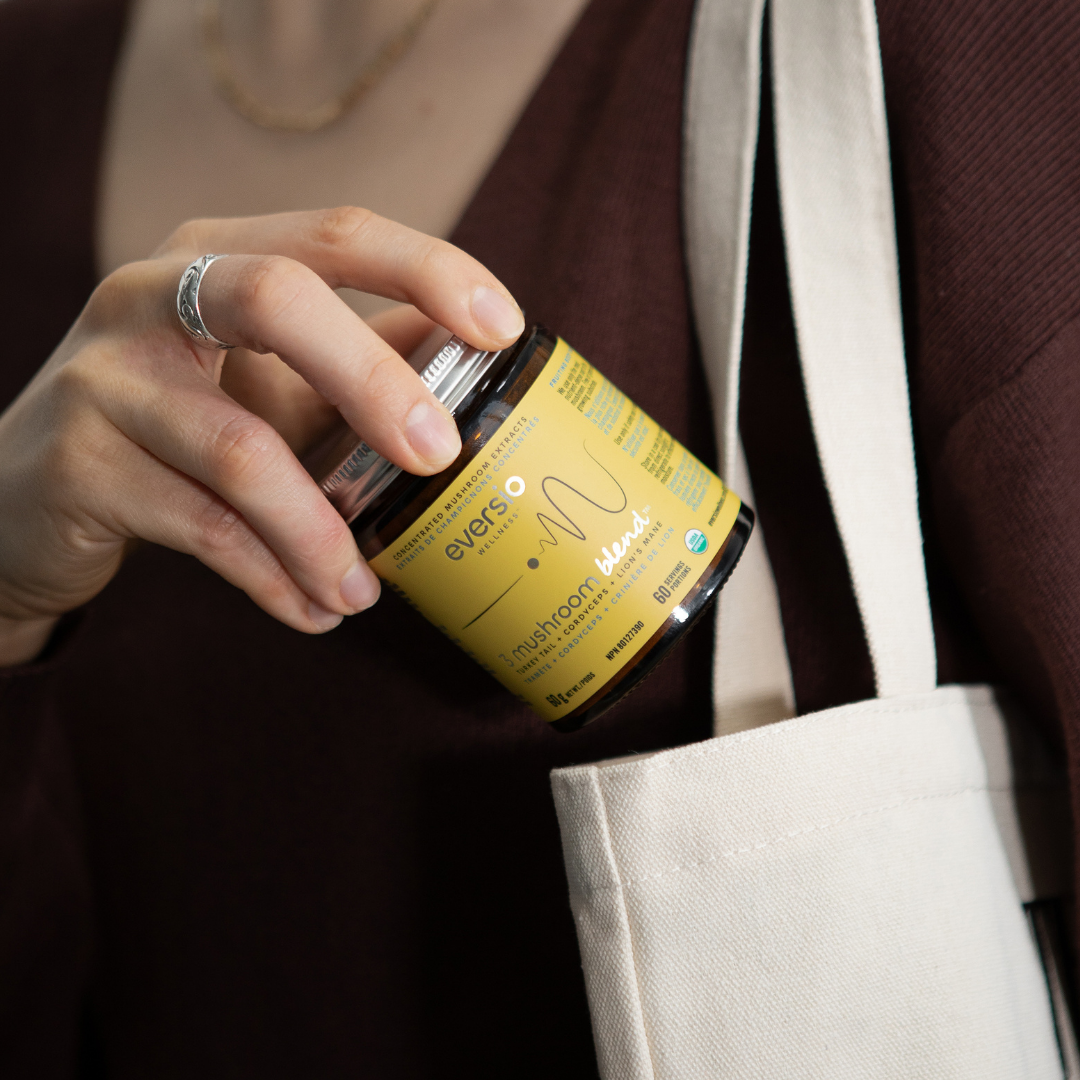

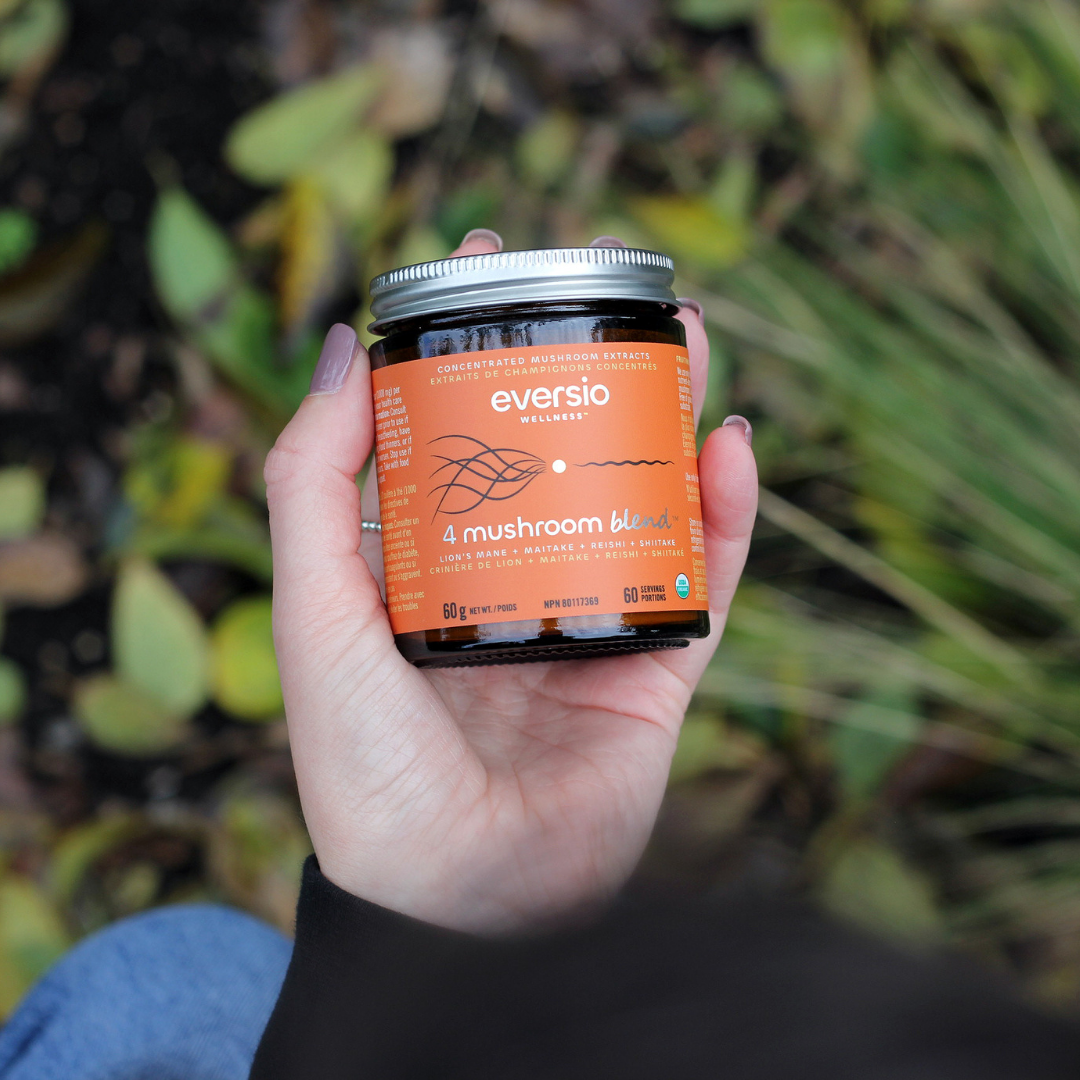

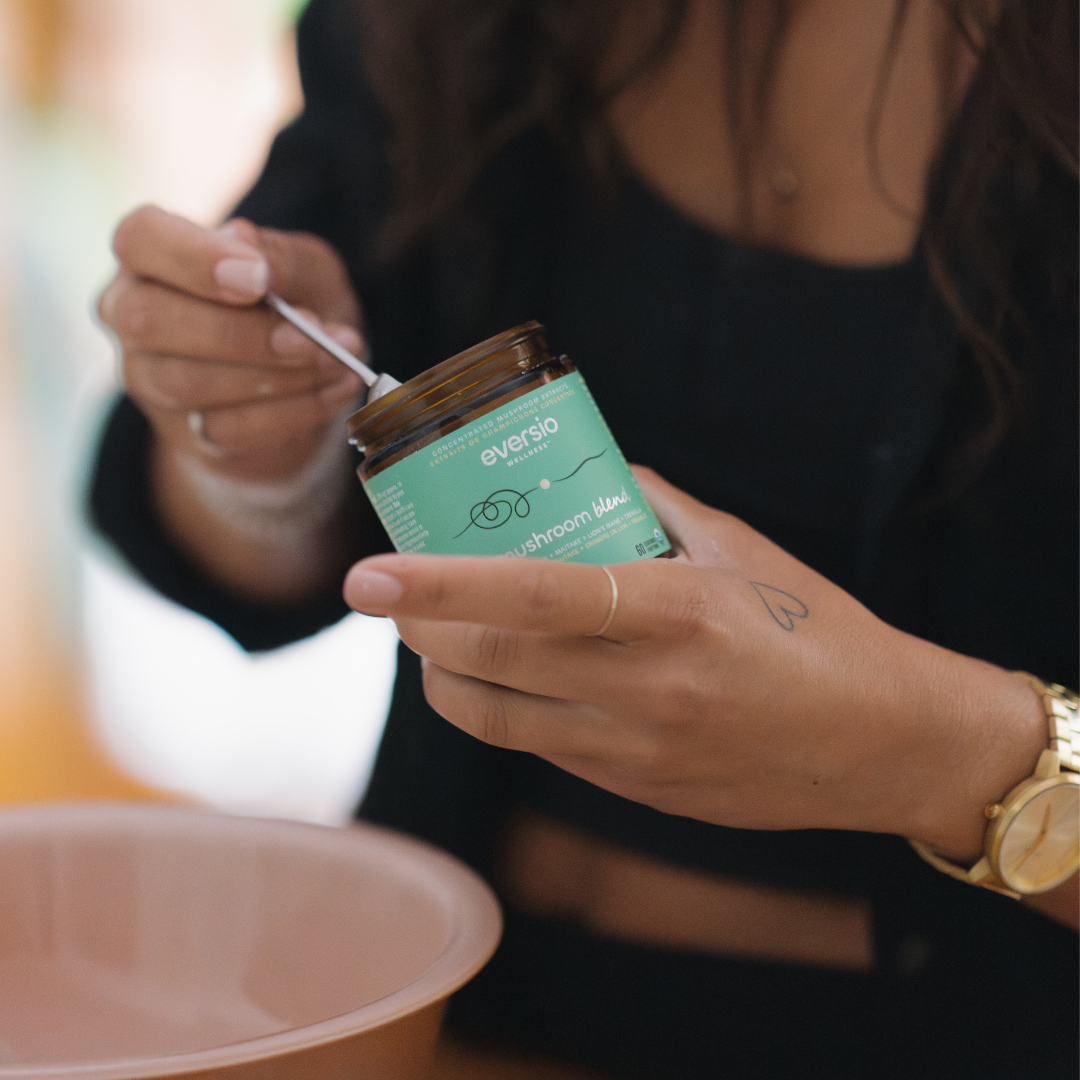

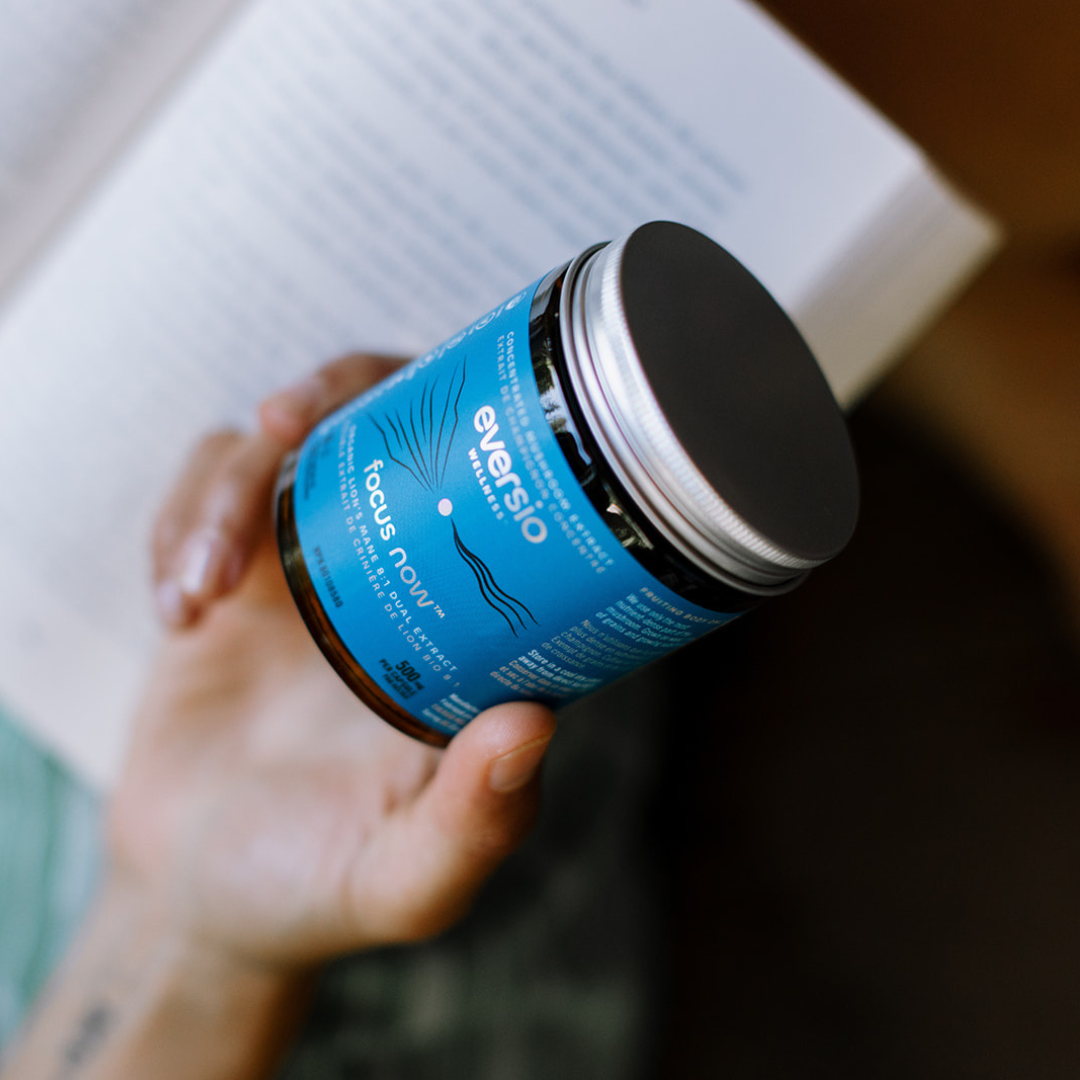

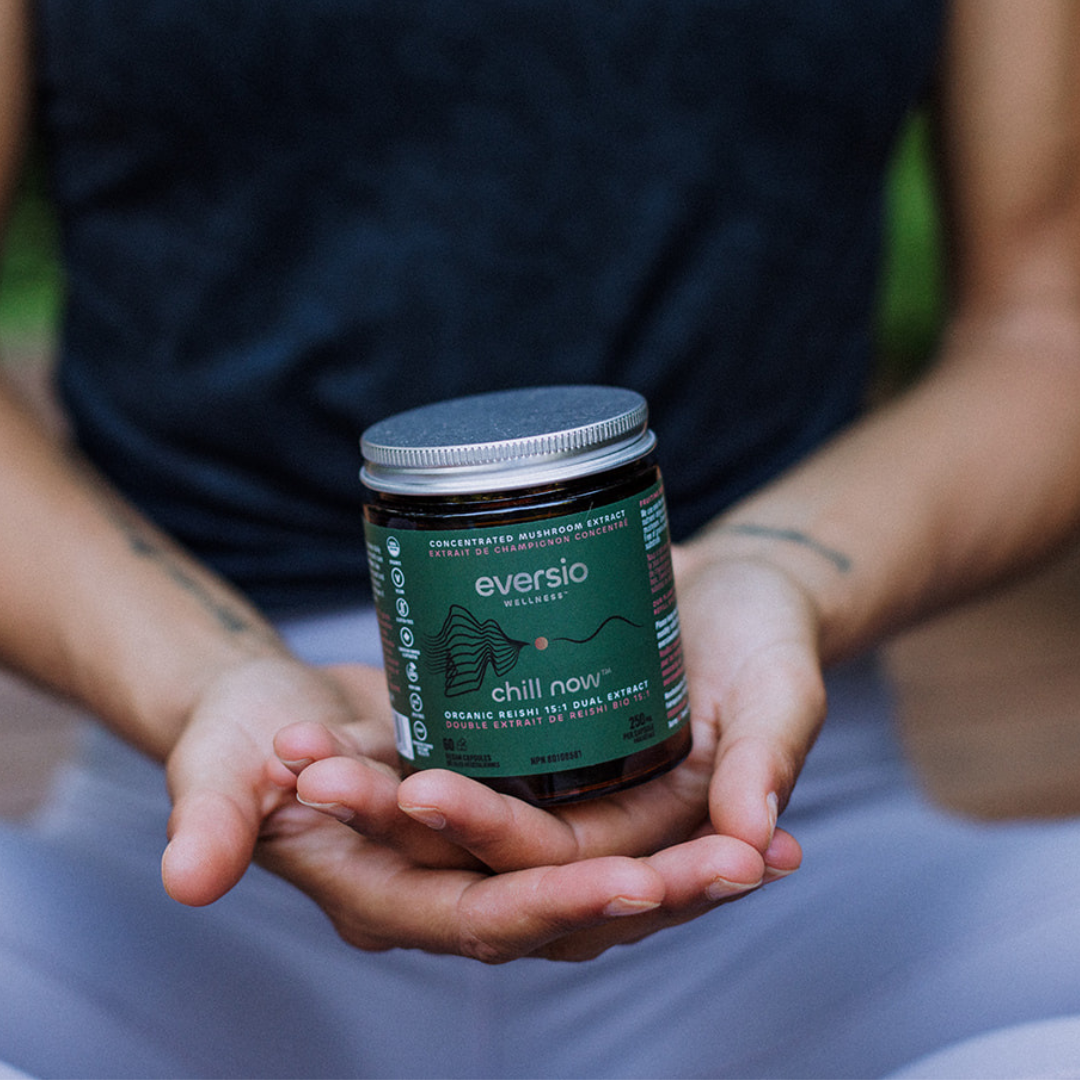
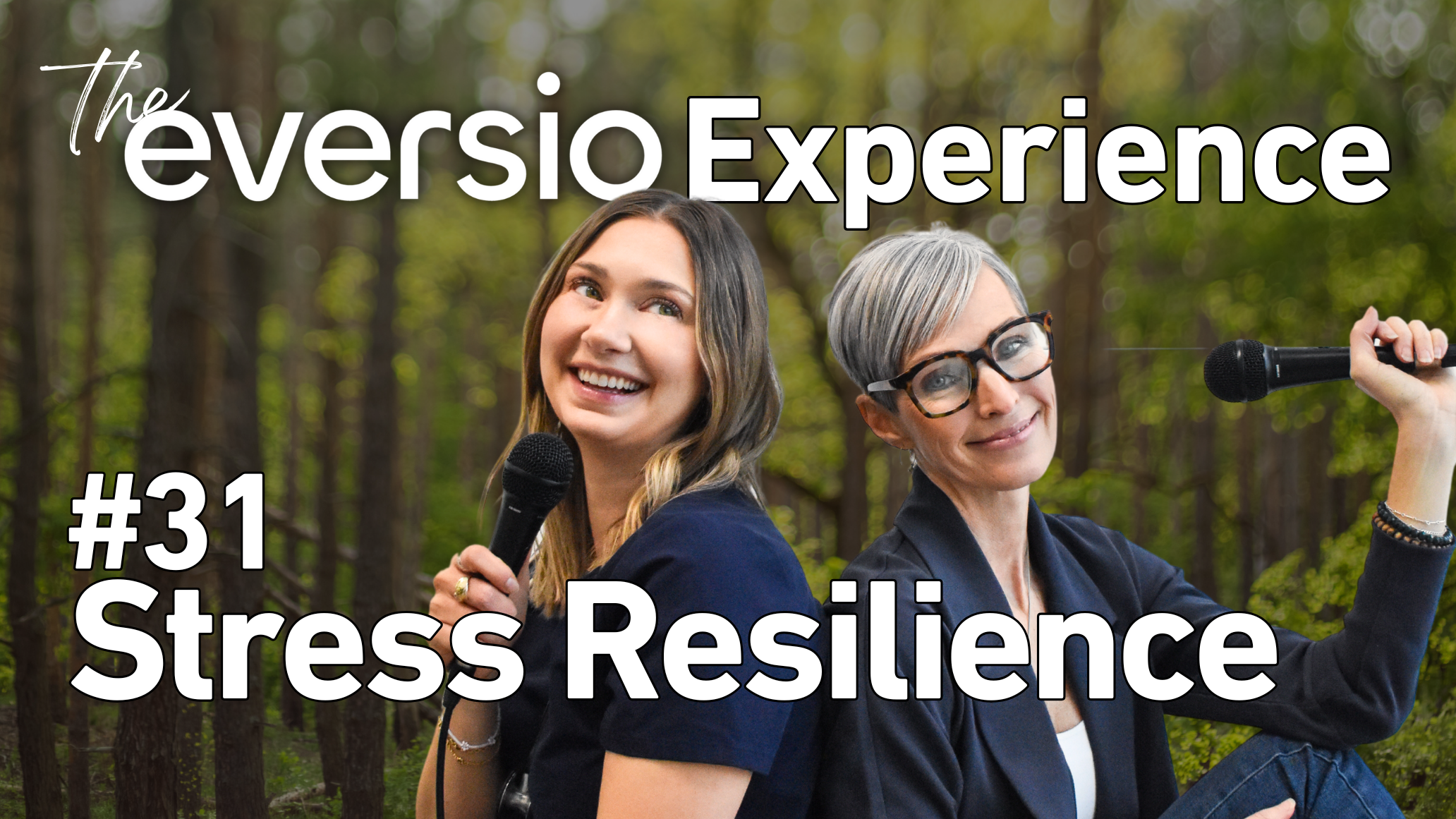







Leave a comment
All comments are moderated before being published.
This site is protected by hCaptcha and the hCaptcha Privacy Policy and Terms of Service apply.